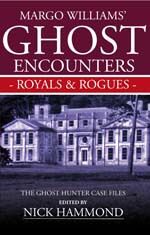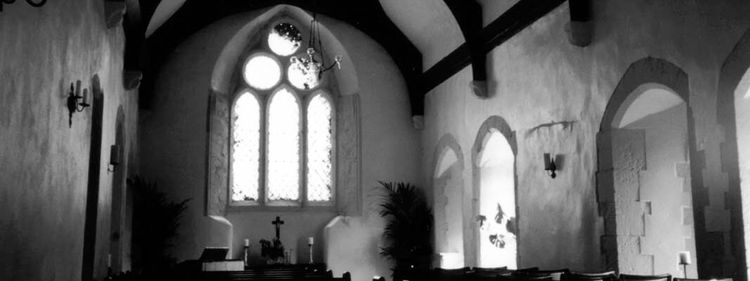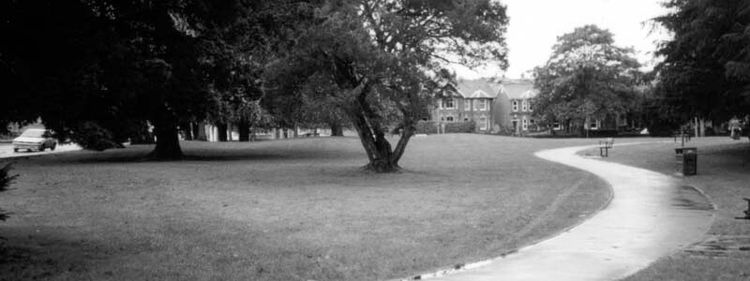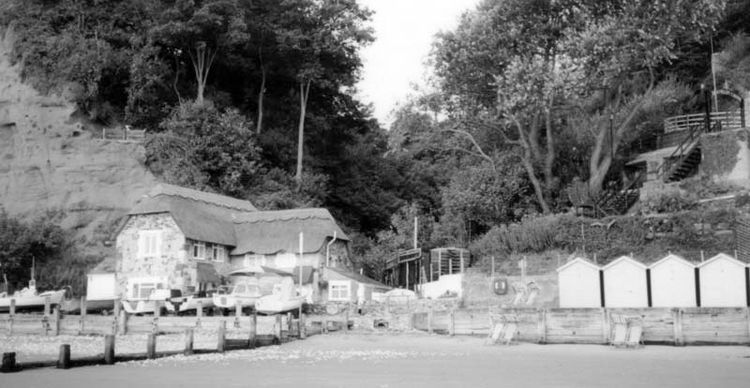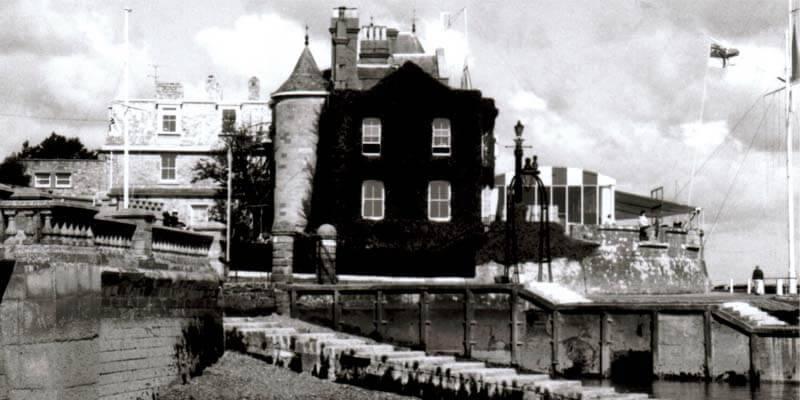Newport Old Grammar School. Ghosts of the Isle of Wight, with Margo Williams

The Not-so-Great Escape. Endgame
This historic building in St. James Street was the venue for a deadly political drama to conclude the English Civil Wars. Desperate prisoner King Charles I presented his case to Parliament for why he should remain King of England.
It didn't go well.
Obviously ghost-spotters put two and two together and say the Old Grammar School ghost probably is the doomed king himself, well not quite himself, in a living-breathing sort of way.
The Treaty of Newport
After six years of civil war in England, in August 1648 Parliament agreed to enter negotiations for a personal treaty with the king, in the hope of securing a plan to resolve the conflict destroying this country. After much discussion with Charles - held prisoner in Carisbrooke Castle - everyone agreed the negotiation be conducted at Newport.
Treaty Teams
Monday September 18th, 1648 parliamentary commissioners and their lawyers met with the king to agree terms for peace. (Old Town Hall also a possible venue site). Treaty negotiations lasted from October 2nd until November 27th 1648.
15 commissioners were appointed: five lords: the earls of Middlesex, Northumberland, Pembroke, Salisbury and Lord Say & Sele. 10 'commoners', including Sir Harbottle Grimstone, Denzil Holles and Sir Harry Vane.
£10,000 was thought enough to cover expenses. £3,000 allocated to the commissioners.
The king's team were: Duke of Richmond, Marquis of Hertford, the Earls of Lindsay and Southampton, named gentlemen of the Bedchamber. For guidance His Majesty appointed the bishops of London and Salisbury; the Dean of Canterbury.
In addition to another four secretaries; Henry Firebrace looked after the kitchen and Anthony Mildmay took care of the carving.
'The royal household was accommodated in Mathew Hopkins' house, near the Grammar School. The Bull (since renamed the Bugle) Inn was placed at the disposal of the parliamentary commissioners.' says historian Adams.
'The King sat upon a raised canopy under a dais, attended by his lords, chaplains and secretaries. The commissioners were seated on each side of a long table, at a convenient distance from him. When he sought to consult with his attendants, or to refresh himself, he retired to the adjoining chamber.
The negotiations took three months. During which Charles promised not to attempt escape.

'...Very little importance, however, can be attached to the king's assertions and concessions owing to his habitual and unconquerable duplicity,' was the general conclusion. And so, this political encounter is consigned to footnote in English history.
Every historical footnote has a human drama attached. Two days after Treaty negotiations concluded in stalemate, the king was arrested.
His Majefty's Last Night in Newport
Sir Richard Worsley in his epic History of the Isle of Wight pieced together a timeline of how the king was captured.
Captain Cooke witnessed events in the Newport room wherein King Charles waited with his attendant friends, the Duke of Richmond and the Earl of Lindsay.
Sir Richard related the drama as it unfolded according to Cooke's report...
That night, November 29th 1648 was wet. Newport's streets howled with a driving storm and patter-patter rattle of stinging rain on Roundhead soldiers' helmets. A crazed darkness of spluttered wind-tormented lantern-glow.
"1.30 A.M. A sodden wind-blown Colonel Cooke snarled at the army guards outside the king's room. 'Away!' He hammered on the king's door. 'Majefty it is me!'
Lindsay opened the door. 'Cooke. Thank God it's you! What news?'
King Charles' eyes were wide with panic. 'Tell me!'
'I attempted to complain of the rudenefs of the foldiers. Major Rolfe fent word that he was far from intending to incommode your majefty. He has thought of the expedient of having all the guards doubled in order to difpofe of them for the prefent, never forefeeing the confequences that fo upfet you. But that in the morning he will redrefs all things himfelf.'

'They mean to feize you majefty. And quickly.'
Everyone agreed.
'What do we do?'
'Efcape!'
Charles moved to the window and saw soldiers in the street staring up at him, laughing; 'firs,' said the king. 'It would be too difficult, if not impoffible. And the confequences should we fail.' Wistful he closed the curtains. 'It would exafperate the army and worfe, it would difhearten our own friends.
Befides, even if the army feizes me they have to preferve me, for their own fakes. None of them can fecure their own intereft without joining with mine. My fon is out of reach.'
'Majefty, efcape. Now. Go! It is the only means to fecure yourfelf from danger!'
'Take heed fir,' said Richmond. 'If you remember Hampton Court? Efcape was your beft fecurity.' Richmond peeked through the curtains. 'Efcape is feafable enough. Cooke. How do you pafs to and fro?'
'I have the word.'
'Do you think you could pafs me alfo?'
'No problem...'
The Duke of Richmond grabbed a cloak, wrapped it round himself then pushed the soaking Colonel to the door. 'Let us try fomething,' and walked out of the chamber, through all the army guards and down into the street. Then came back and saw Charles by the window. 'Majefty. It is poffible. Come!'

'Majefty the cloak, now,' said Richmond.
'Majefty I agree!' said Lindsay.
Charles shook Cooke. 'Ned, give me your advice.'
'Majefty, permit me to propofe a queftion.'
'Granted.'
'fuppofe I should not only tell your majefty that the army mean fuddenly to feize upon your perfon but by concurring circumftances can fully convince you of this,' Cooke whispered. 'fuppofing alfo that befide the word, I have horfes ready at hand, a veffel attending, and hourly expecting me at Cowes, myfelf both ready and defirous of attending your majefty.
And the darknefs of the night as it is fuited to the purpofe, fo that I can forefee no vifible difficulty in the efcape. The queftion is, what will your majefty refolve to do?'

What the King Chose to Do
According to Colonel Cooke's account of the events what happened next was this...
'No!' said Charles. 'They have promifed me and I have promifed them. I will not break firft.'
'Majefty, with refpect. I beg leave to argue!'
'With all my heart,' sighed Charles.
'fee the fcene is now quite changed. The army has already fo far violated the votes and promifes of the parliament as to invade your majefty's freedom and fafety by changing the fingle fentinel of ftate at the door, contrary to their declared promife, into thefe guards on your very bed-chamber, which is no better than confinement and in all probability is the forerunner of fomething worfe.'
'Ned,' said the king. 'I can do nothing that will look like I have broken my word. And fo I bid you and the Earl of Lindfay goodnight. Go and dry off. The Duke of Richmond is in waiting. I will go and take my reft too, as long as I can.'
'Majefty I fear it will not be long.'
'As it pleafes God.' Cooke's face twisted with disbelief. 'Ned what troubles you, tell me?'
'The greatnefs of your majefty's danger and your unwillingnefs to do anything about it!' Cooke pleaded.
Charles closed the curtains, stared into the space above and beyond Cooke's head. ''Never let that trouble you Ned. For were it greater I would not break my word to prevent it.'
'Majefty, pleafe.'
'I have refolved already.'
'What time is it?' asked the duke as he closed the king's door.
'Two o'clock...'

The Ghost of the Old Grammar School
Some Newport paranormalists believe the ghost of the Old Grammar School is King Charles, but that always was a long shot guess.
The king spent his final months in London, before his untimely end. Most right-minded people say God cannot be that unkind as to doom His chosen vessel on earth to so traumatic scene-of-stupidity.
Others suspect the ghost of the old Grammar School is a supporting character in the drama of the unlucky king. And Captain Cooke only knew half the story.
Exploring the haunted Isle of Wight
Thank you for your company on this short tour of Isle of Wight mysteries and haunting. If you would like to know more about Margo Williams' investigations in Newport and other royals and rogues, read this book. Now available from Amazon.
